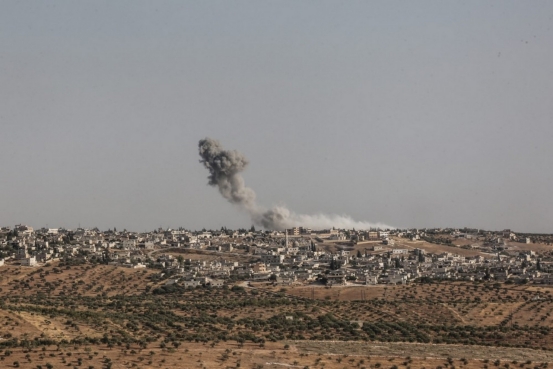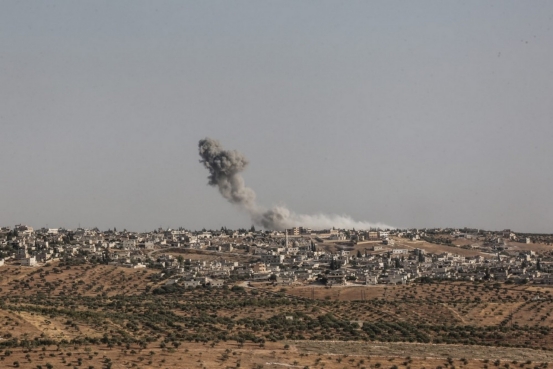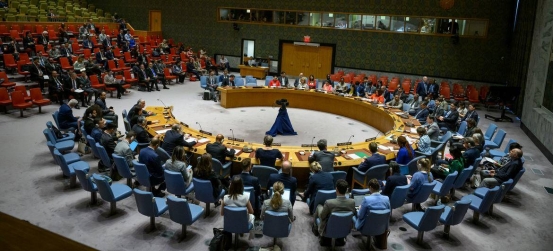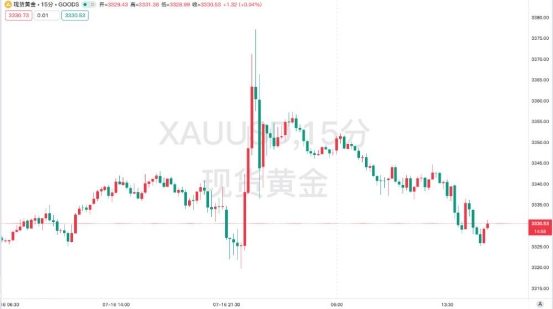Israel's airstrike on the Syrian capital detonates the situation in the Middle East! The emergency meeting of the Security Council focuses on the sovereign crisis, and the safe-haven content of gold is tested again
- 2025年7月21日
- Posted by: admin
- Category: News

On the evening of July 16, local time, the Israeli Defense Forces launched a large-scale airstrike on the Syrian capital Damascus, targeting the Syrian Ministry of Defense building, military facilities near the presidential palace and the entrance to the General Staff Headquarters, killing at least 3 people and injuring 34. This action is the largest military escalation since Israel intervened in the conflict in Suwayda Province in southern Syria on July 14, directly triggering an emergency meeting of the UN Security Council. The Security Council will hold closed-door consultations at 18:00 Beijing time on the 17th to discuss the issue of "condemning Israel's violation of sovereignty" proposed by Syria.

Israel used F-35 fighter jets and drones to carry out precision strikes on core military targets in Damascus under the pretext of "protecting the Druze people in southern Syria from persecution." The Israeli military said it had destroyed the Syrian army's command center and blocked the Syrian government's deployment of additional troops to Suwayda Province. It is worth noting that when the attack occurred, Al Jazeera was broadcasting live in the center of Damascus. In the video, the Syrian female anchor fled in panic because the Ministry of Defense building behind her was blown up. The relevant video quickly attracted global attention on social media.
Syria's transitional President Sharif al-Azhar delivered a national speech on the 17th, condemning Israel's attack as a "blatant violation of international law" and vowing to "defend sovereignty by all means". The Syrian Ministry of Foreign Affairs has submitted an emergency motion to the Security Council, demanding sanctions against Israel. At the same time, Iranian Foreign Minister Araghchi spoke out through social media, calling Israel's actions a "cancer of regional stability" and calling on the international community to take joint action to curb them.
II. International struggle: Security Council game and divergence of major power positions
This conflict exposed the differences in the war among the major powers in the Middle East. On the 16th, US Secretary of State Rubio said that a "ceasefire step" had been reached with the parties to the conflict, but stressed that "Israel has the right to defend itself." In a statement before the Security Council meeting, Russian Permanent Representative to the United Nations Nebenzia accused Israel of "undermining the regional security architecture" and demanded an immediate end to military intervention. Turkey, France and other countries also issued statements calling for the resolution of disputes through diplomatic means and opposing unilateral military action.

3. Gold market: a tug-of-war between risk aversion and policy expectations
The escalation of the geopolitical crisis has directly impacted the gold market. As of the Asian morning session on July 17, spot gold was quoted at $3,330.53 per ounce, down nearly $50 from the previous day's high, but still up 1.2% from this week's low. This volatility reflects the market's dual considerations of geopolitical risks and the Fed's policies:

Fed policy expectations suppress gains: Despite rising geopolitical risks, the Fed's Beige Book shows that companies are facing "moderate to significant cost pressures" due to tariffs, and the market's expectation of a 25 basis point rate cut in September has dropped from 70% to 62%. Atlanta Fed President Bostic reiterated on the 17th that current inflationary pressure "forces the Fed to remain patient", which caused the US dollar index to rebound to 98.4 and the US Treasury yield to rise to 4.46%, which put short-term pressure on gold.
Israel's military action is not only a microcosm of regional power games, but also a new challenge to the global geopolitical order. In this war without gunpowder, the gold market will continue to play the role of a global risk "thermometer", and geopolitical uncertainty is becoming a core variable affecting asset pricing.

